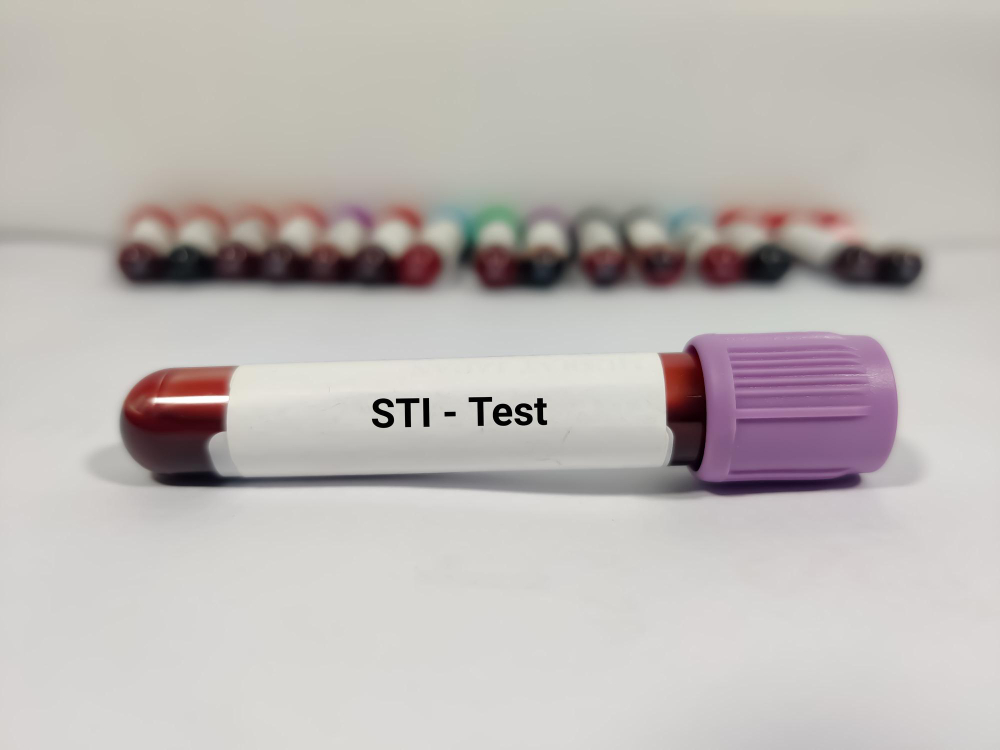 Not telling your partner about your STD/STI status puts their health at risk. Left untreated, STDs can cause serious health problems, ranging from cancers, infertility, and even death. By being honest and upfront with your sexual partner(s) about your status, you are:
Not telling your partner about your STD/STI status puts their health at risk. Left untreated, STDs can cause serious health problems, ranging from cancers, infertility, and even death. By being honest and upfront with your sexual partner(s) about your status, you are:
- Giving them the chance to get tested and treated, if needed
- Helping them make an informed decision about their health
- Reducing your chance of getting re-infected
Regardless, it’s an awkward conversation to have. To help, here are some tips on how to tell your partner you have an STD:
Provide a Comfortable Environment
Broach the conversation in a space where both you and your partner feel at home. Don’t go to a crowded restaurant or bring it up at a friend’s dinner party or family get-together. Telling your partner you have an STD will likely be the start of a larger conversation. Choose somewhere you’ll both feel at ease.
Be Straightforward
Tell your partner about your STD before having sex (or before having sex again). Let them know what type of STD it is, how you contracted it, when you’re receiving treatment, and what kind. You don’t have to tell them every last detail about your sexual history, but you should provide them with all the relevant information. Have educational and safety resources available if your partner is unfamiliar with your STD. As we explored in our sexual health post, not everyone received a proper medical education in school. Your partner may be worried about the health and safety of you both, so having a conversation about your status and the resources available can alleviate those concerns.
Prepare to Answer Questions
No matter how detailed your explanation is, your partner will likely have questions. It’s normal for people to get worried or confused when learning of their partner’s status. While answering their questions, don’t get defensive or make frivolous excuses. Remain calm, be open and honest, and address their questions and concerns to the best of your ability. If you got your STD from another sexual partner while in your relationship, your partner may also become angry, to prepare to answer that line of questioning.
Prepare for All Possible Reactions
Many of us don’t know how to react when given bad news until we hear it. You may think you know your partner, but you should never assume you’ll know exactly how they’ll react. Respect their needs when you tell them, and be there to answer any questions. Don’t forget to have a support system of your own. Telling your partner you have an STD will be difficult, so have a friend or loved one ready to talk if needed. It may also help to rehearse the conversation with one of them first.
Imagine Being in Your Partner’s Shoes
If the roles were reversed, how would you react to hearing the news? Think about their perspective during the conversation. This will help you empathize with them while telling them the news. You’ll also have a better idea of what information they’ll need, and what types of resources or support they’ll require after.
Be Prepared for Some Judgment
If you’ve had an STD since before your relationship, or if you are your partner are sexually open, then you may not receive any judgment at all. In many cases, your partner will thank you for your honesty and bravery, because it’s not an easy conversation to have. If it was, we wouldn’t be writing a post about it! If you contracted an STD while cheating on your partner, you’re likely to be judged for it. Regardless, it’s a necessary conversation to have. Knowing that your partner has an STD, rather than telling them about your status, will make things much worse for both of you.
Be Okay with Giving Them Space
Telling your partner you have an STD may be one of the most difficult conversations you ever have. Whenever we receive bad or heavy news, we need some time to digest it and recalibrate our mindsets. You’ve known about your STD for a period, whether it’s hours, days, months, or even years. Think about how long it took you to process that information. That news didn’t just roll right off your back. You probably needed some time to think. Your partner will need the same. All you can do is answer any of their questions and provide any support they need.
Final Thoughts on How to Tell Your Partner You Have an STD
STDs are far more common than most people realize. According to the CDC , there’s been almost a 30% increase in reportable STDs in the last six years, and there were 2.5 million reported cases of Chlamydia, Gonorrhea, and Syphilis in 2019. STD rates are especially high among gay and bisexual men. In 2019, they made up nearly half of all primary and secondary syphilis cases, and their gonorrhea rates were 42 times higher than heterosexual men. You should never feel ashamed or “lesser” because of getting an STD. However, it is your responsibility to tell your sexual partner(s) when you have an STD and get it treated to prevent it from spreading. If you think you may have contracted an STD, or would like more information about them, send us a message.

